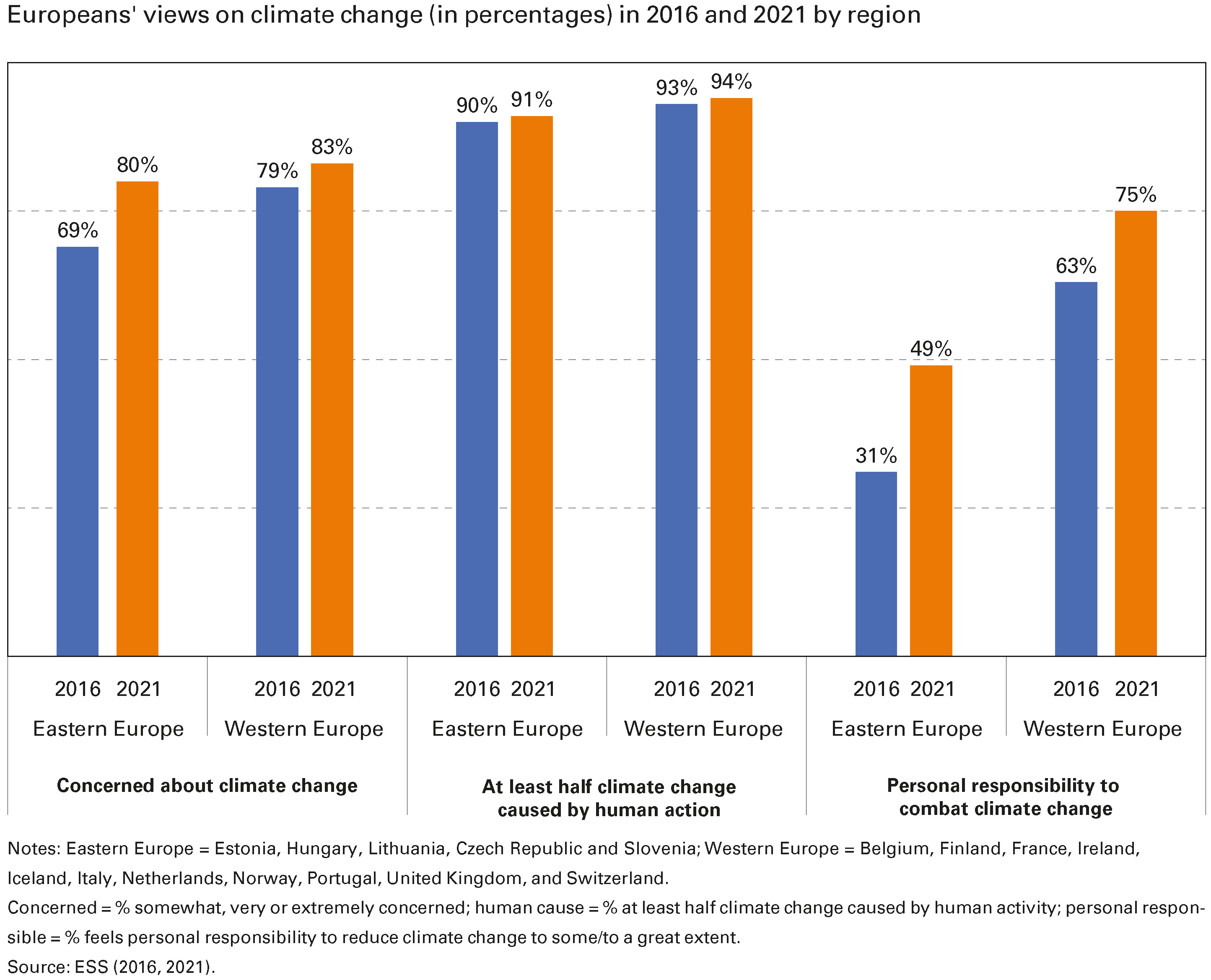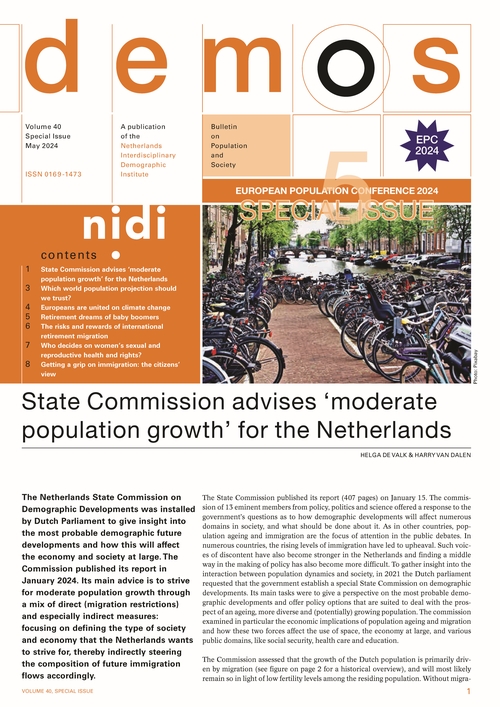Meeting the challenges of climate change requires far-reaching policies and regulations that are only feasible with broad public support. Europe plays a major role in this. Not only are European countries major contributors to climate problems, many measures will also have to be taken in a European context. How does the European population think about climate and how have these views changed in recent years? The European Social Survey (see box) provides answers to these questions.
Looking at the figure below, the first thing to notice is that in 2021, a large part of the European population in the countries surveyed is somewhat to extremely concerned about the climate. There is also broad agreement in Europe that at least half of climate change is caused by human activity. When asked how responsible people feel when it comes to combatting climate change the figure shows clear differences between Eastern and Western Europe. While in Switzerland (83%), France (83%) and the UK (80%) a particularly high proportion of the population feels to some extent or more personally responsible to try to reduce climate change, this is true for a, comparatively, small proportion of the Hungarian (56%), Estonian (53%) and Czech (36%) populations.

The figure also shows that between 2016 and 2021, there have been changes in European views on climate change. On average, 78 per cent of the European population in the countries surveyed were concerned about climate change in 2016; by 2021, this had increased to 83 per cent. The belief that at least half of climate change is caused by humans has changed only slightly: from 93 per cent in 2016 to 94 per cent five years later. The biggest change is seen in the sense of responsibility to reduce climate change. In 2016, 60 per cent of Europeans felt personally responsible; by 2021, this had risen to 73 per cent. All in all, Europeans thus consider climate change increasingly important. In particular, awareness of the role the individual plays in this has grown. Remarkably, differences between European regions on all three questions have become either smaller or stayed constant over time. So, not only is climate change being taken more and more seriously, there also seems to be a growing shared European view on climate change.
Maria Eismann, Saxion University of Applied Sciences, e-mail: m.eismann@saxion.nl
Daniël van Wijk, NIDI-KNAW/University of Groningen, e-mail: wijk@nidi.nl
Aart Liefbroer, NIDI-KNAW/University of Groningen and UMCG, e-mail: liefbroer@nidi.nl
Literature
- Eismann, M., D.C. van Wijk, and A.C. Liefbroer (2023), Gevoel voor verantwoordelijkheid klimaatverandering groeit, Demos, 39 (8), pp. 1-4.


